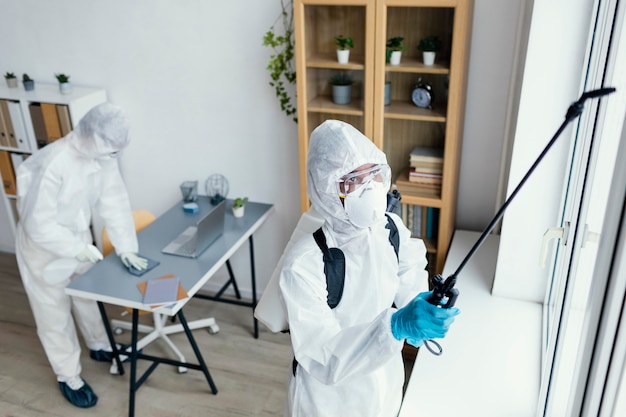
Expert Tips for Safe and Effective Termite Control in Dallas
Termites are a significant concern for homeowners in Dallas, where the climate provides the perfect environment for these pests to thrive. Effective termite control is crucial to protect your property from structural damage and potential financial losses. By understanding the best practices for termite management, you can take proactive steps to safeguard your home. This article provides expert tips for safe and effective termite control in Dallas, helping you to manage the problem efficiently and sustainably.
Understanding Termite Behavior
To effectively control termites, it's essential to understand their behavior and the conditions they thrive in. Termites are attracted to moisture and cellulose-based materials, such as wood and paper. They can enter homes through cracks in the foundation or wood-to-ground contact.
- Subterranean termites are the most common type in Dallas, building colonies in the soil and creating mud tubes to access wood structures.
- Drywood termites, while less common, can infest wooden structures without needing soil contact.
- Regular inspections are vital to detecting termite activity early. Read more about this topic.
Preventive Measures
Prevention is the first line of defense against termite infestations. By making your home less attractive to these pests, you can significantly reduce the risk of an infestation.
Home Maintenance Tips
- Ensure proper drainage around the foundation to keep soil dry.
- Repair leaks promptly to prevent moisture buildup that attracts termites.
- Keep gutters clean to prevent water accumulation near the foundation.
- Store firewood and other cellulose materials away from the home.
- Seal cracks and crevices in the foundation and walls to eliminate entry points. Learn more in this detailed guide.
Landscaping Considerations
- Maintain a gap between soil and wooden parts of the house, such as siding and decks.
- Trim vegetation and bushes to prevent them from touching the exterior walls.
- Use termite-resistant materials for fences and other structures close to the soil.
- Consider installing physical barriers like metal mesh or sand to deter termites from entering the home. Explore further insights here.
Treatment Options
If termites are detected, choosing the right treatment method is critical. Various solutions are available, ranging from chemical treatments to natural alternatives.
Chemical Treatments
- Liquid termiticides can be applied around the foundation to create a chemical barrier.
- Bait systems involve placing poisoned bait stations around the perimeter, which termites carry back to the colony.
- Ensure chemicals are applied by licensed professionals to guarantee safety and effectiveness. Find additional information here.
Natural and Non-Chemical Solutions
- Boric acid is a natural pesticide that can be used as a powder or dissolved in water.
- Nematodes, microscopic worms, can be introduced to soil to prey on termite larvae.
- Heat treatment involves raising the temperature of infested areas to levels lethal to termites.
- These methods are environmentally friendly but may require professional expertise for effective application. Learn more in this detailed guide.
Regular Monitoring and Professional Inspections
Even after preventive measures and treatment, ongoing monitoring is vital for ensuring long-term protection against termites. Regular professional inspections can help detect new infestations early and maintain the effectiveness of any treatment applied.
- Schedule inspections at least once a year, or more frequently in high-risk areas.
- Professional inspectors use specialized tools and knowledge to identify signs of termite activity that might be overlooked by homeowners.
- Continuous monitoring helps adapt strategies to changing conditions and emerging threats. Explore further insights here.
By following these expert tips for termite control in Dallas, homeowners can protect their properties effectively and sustainably. For more in-depth information and guidance, read more about this topic and take proactive steps towards safeguarding your home.